Netherlands
Quality education delivers innovative courses in its multicultural learning environment.
practically outstanding
Quick Facts
50+
Universities & Institutions
2000+
Courses
115,000+
International Students

HIGHER EDUCATION IN
NETHERLANDS
The Netherlands offers a top-tier education system with a focus on interactive learning, practical skills, and innovation. Renowned for its English-taught courses, it attracts international students from all over the world. With scholarships, a multicultural environment, and excellent research opportunities, the Netherlands is a highly desirable destination for pursuing higher education and beyond.
REASONS
IMPRESSIVE
ACADEMIC EXCELLENCE
The Netherlands is known for its excellent student-centred education system, offering high-quality courses. Universities are recognised for their academic standards globally.
COURSES IN ENGLISH
Universities in the Netherlands offer courses taught in English, making them accessible to international students, and it is decently used in academic settings and beyond.
scholarships & grants
Scholarships, grants, and financial support options are available for international students, making education more accessible and reducing financial burdens.
PART-TIME WORK
As an international student with your studies, you can work up to 16 hours per week or full-time during scheduled holidays, enriching work experience opportunities.
quality of life
The Netherlands’ multicultural and inclusive society attracts students worldwide, fostering cultural diversity that offers global networking opportunities through its education.
Stay Back
“Residence Permit in Orientation Year for Highly Educated Persons” allows international students to stay one year in the Netherlands to search for employment.
PROUD TO BE WORKING WITH
Institution Partners
top Courses
- Business Administration and Management
- Engineering and Technology
- Social Sciences
- Information and Communications Technology
- Life Sciences and Health
GUIDING YOUR TRANSFORMATIVE JOURNEY
PROCESS WITH US
With a concise and straightforward four-step process, you can embark on a transformative journey to study abroad,
opening doors to a future that has the power to revolutionize your life.
Discuss, Explore & Identify
We work with you to identify the best fit for you.
Apply, Accept & Confirm
Applying to the shortlist and finalising options.
Time to apply VISA
We work with you; on a checklist to apply for VISA
A COUPLE OF STRIDES AWAY FROM
ACHIEVING YOUR GOALS
Engage you throughout the process, ensuring your aspirations, passion, and unique story guide us towards achieving your desired outcomes.
MAKING YOUR STUDY ABROAD EASIER
MORE WE DO
Trust us because we have a proven track record of success, industry expertise, and a commitment to exceptional results. We prioritize client satisfaction, open communication, and tailored solutions. We embrace challenges, mitigate risks, and prioritize the success of our partners with deep local expertise in a global context.
ESSENTIALS
FAQ
What advantages do international students get from studying in the Netherlands?
International students studying in the Netherlands enjoy several advantages, including:
High-Quality Education: The Netherlands is known for its excellent education system, offering a wide range of high-quality programs and internationally recognized degrees.
English-Taught Programs: Many courses in the Netherlands are taught in English, making it accessible for international students who may not be fluent in Dutch.
Multicultural Environment: The Netherlands is a multicultural country with a welcoming atmosphere, providing international students with opportunities to interact with peers from diverse backgrounds and learn from different perspectives.
Global Networking Opportunities: Studying in the Netherlands allows international students to build a strong international network of connections, which can be valuable for future career prospects and collaborations.
Innovative and Research-Oriented: The Netherlands has a strong focus on research and innovation, providing international students with access to cutting-edge facilities, resources, and research opportunities.
Practical and Industry-Relevant Education: Many programs in the Netherlands emphasize practical learning and industry relevance, equipping students with the skills and knowledge needed to succeed in their chosen fields.
Strong English Proficiency: The Dutch population has a high level of English proficiency, making it easier for international students to communicate and integrate into the local community.
Affordable Education: Compared to some other study destinations, the cost of education in the Netherlands can be relatively affordable, with various scholarships and funding options available for international students.
Quality of Life: The Netherlands offers a high standard of living, with excellent healthcare, public transport, safety, and a vibrant cultural scene, providing international students with a comfortable and enjoyable living experience.
These advantages contribute to making the Netherlands an attractive destination for international students seeking quality education, cultural diversity, and career opportunities.
Do we have degree courses taught in the English Language in the Netherlands?
Yes, the Netherlands offers a wide range of degree courses taught entirely in the English language. Many universities and higher education institutions in the Netherlands provide English-taught programs at the bachelor’s, master’s, and doctoral levels. These programs cover various disciplines, including business, engineering, social sciences, humanities, natural sciences, arts, and more.
English-taught programs in the Netherlands accommodate international students who may not be fluent in Dutch but still wish to pursue their studies. These courses ensure that language is not a barrier and does provide an opportunity for international students to receive a high-quality education while studying in a multicultural environment.
It is advisable to check the language requirements of the specific course or university you are interested in to ensure that you meet the necessary criteria.
What are the general admission requirements for an Undergraduate and master's degree in the Netherlands?
The general admission requirements for undergraduate and master’s degree programs in the Netherlands may vary depending on the university and program you are applying to. However, here are some general requirements:
Undergraduate Degree:
- Educational Qualifications: Completion of a secondary school diploma or an equivalent qualification that is recognised in the Netherlands.
- Language Proficiency: Demonstrating proficiency in the English language through recognised language tests such as IELTS or TOEFL, or meeting the language requirements through previous education conducted in English.
- Specific Entry Requirements: Some programs may have additional subject-specific entry requirements, such as mathematics or science prerequisites for STEM courses.
- Supporting Documents: May include academic transcripts, motivation letters, and reference letters.
Master’s Degree:
- Bachelor’s Degree: Possessing a relevant bachelor’s degree or equivalent qualification from a recognised university or institution.
- Grade Point Average (GPA): Meeting the minimum GPA requirement specified by the university or program you are applying to.
- Language Proficiency: Demonstrating proficiency in the English language through recognised language tests such as IELTS or TOEFL, or meeting the language requirements through previous education conducted in English.
- Letters of Recommendation: Provide letters of recommendation from professors or professionals who can assess your academic abilities and potential.
- Statement of Purpose: Write a statement of purpose or motivation letter that highlights your academic and career goals, as well as why you are interested in the specific program.
- Supporting Documents: May include academic transcripts, motivation letters, reference letters, academic transcripts, CV/resume, and any additional documents specified by the university or institution.
It’s important to note that these are general admission requirements, and the specific requirements may vary between universities and courses.
How many academic intakes do we have at universities or institutions in the Netherlands?
In the Netherlands, the academic year has two main intakes for undergraduate and master’s degree courses:
- September Intake: September intake is considered the key intake for the academic year. Most undergraduate and master’s courses start in September, and the application deadlines for this intake are usually between January and May, depending on the university and program.
- February Intake (Selective): Some universities and courses offer a February intake, also known as the spring or second intake. However, it’s important to note that the number of courses available for the February intake is generally more limited. The application deadlines for the February intake are typically between September and November of the previous year.
It’s important to check the specific intake availability for the course and university you are interested in, as some programs may have limited intakes or may only admit students in September.
What skills and professions are in demand in the Netherlands? How about job opportunities in the Netherlands?
The Netherlands offers job opportunities in various industries and has a demand for skilled professionals. Some of the skills and professions that are currently in demand in the Netherlands include:
- IT and Technology: There is a high demand for professionals in software development, data science, cybersecurity, artificial intelligence, cloud computing, and digital marketing.
- Engineering: Skilled engineers in fields such as civil engineering, mechanical engineering, electrical engineering, and sustainable energy are sought after for infrastructure projects and sustainable initiatives.
- Healthcare and Life Sciences: There is a need for healthcare professionals, including doctors, nurses, pharmacists, biotechnologists, medical researchers, and specialists in areas like genetics and biomedicine.
- Finance and Accounting: The financial sector in the Netherlands requires professionals in finance, accounting, financial analysis, risk management, and compliance.
- Business and Management: Job opportunities exist for professionals in areas such as business consulting, project management, marketing, human resources, supply chain management, and strategic management.
- Creative Industries: The Netherlands has a vibrant creative sector, offering job opportunities in design, advertising, multimedia, gaming, fashion, and film production.
- Agriculture and Horticulture: The agricultural and horticultural industries in the Netherlands require professionals in sustainable agriculture, greenhouse technology, agricultural engineering, and food processing.
- Logistics and Supply Chain: The country’s strategic location makes logistics and supply chain management a significant industry, with job opportunities in transportation, warehousing, distribution, and international trade.
- Renewable Energy: The Netherlands is committed to renewable energy, leading to job opportunities in solar and wind energy, energy management, sustainable engineering, and green technology.
It’s important to note that the job market is dynamic, and the demand for specific skills can change over time. To explore job opportunities in the Netherlands, you can refer to job portals, professional networking platforms, recruitment agencies, and the career services provided by universities and institutions. Additionally, it can be beneficial to research specific industries, and company websites, and attend job fairs or networking events to connect with potential employers and gain insights into the current job market.
What is the student VISA process for the Netherlands?
The student visa process for the Netherlands involves the following steps:
- Admission to a Dutch University: First, you need to apply and gain admission to a recognized educational institution in the Netherlands. You must receive an acceptance letter from the university before proceeding with the visa application.
- Financial Requirements: You will need to demonstrate proof of sufficient financial means to cover your tuition fees and living expenses in the Netherlands. This typically involves providing bank statements or sponsorship letters.
- Health Insurance: You are required to have health insurance that covers the duration of your stay in the Netherlands. You will need to purchase a Dutch health insurance policy or obtain a European Health Insurance Card (EHIC) if you are from an EU/EEA country.
- Visa Application: Once you have been accepted by a Dutch university and have the necessary financial means and health insurance, you can begin the visa application process. Depending on your nationality, you may need to apply for a short-stay visa (less than 90 days) or a long-stay visa (more than 90 days).
- MVV and Residence Permit: For programs lasting longer than 90 days, you will need to apply for a Provisional Residence Permit (MVV) in addition to the visa. The MVV is typically issued at the Dutch embassy or consulate in your home country before your departure to the Netherlands.
- Bio-metrics Appointment: You may be required to visit a visa application centre to provide your biometric data, including fingerprints and a photograph.
- Arrival in the Netherlands: Once you arrive in the Netherlands, you must register with the local municipality (gemeente) within a specified timeframe to obtain a residence permit (VVR).
It’s important to note that the specific requirements and procedures may vary depending on your nationality, the duration of your stay, and the Dutch immigration policies in place at the time of your application. It is recommended to visit the official website of the Dutch immigration authorities (IND) or contact the nearest Dutch embassy or consulate for the most accurate and up-to-date information regarding the student visa process.

